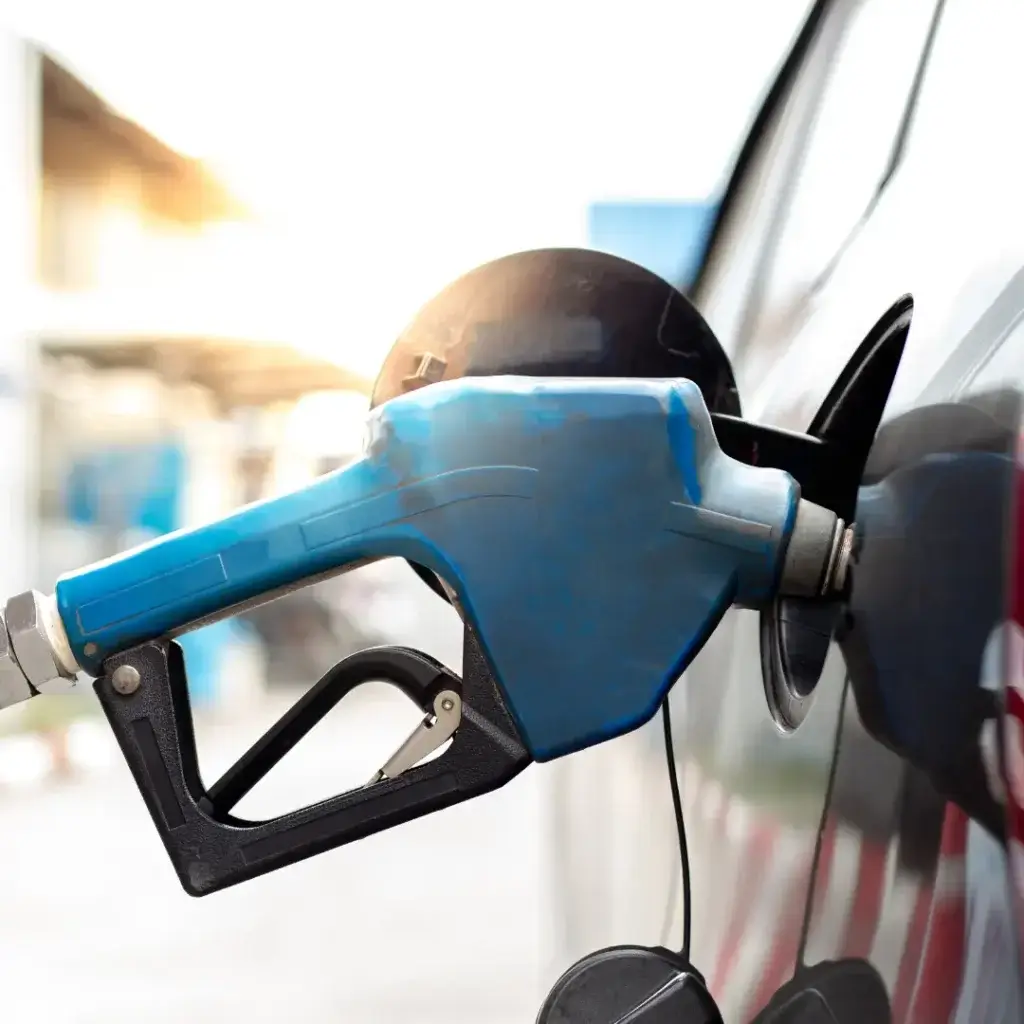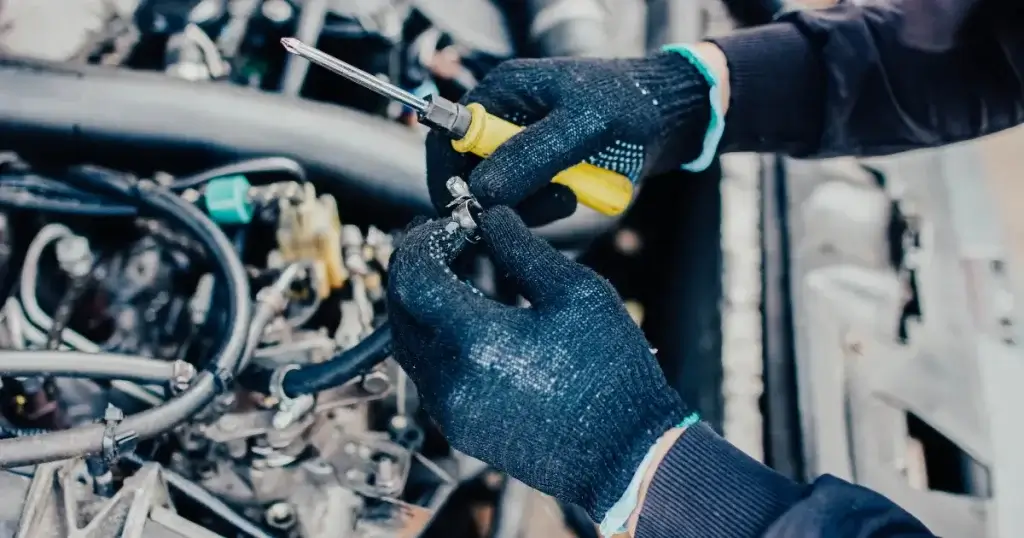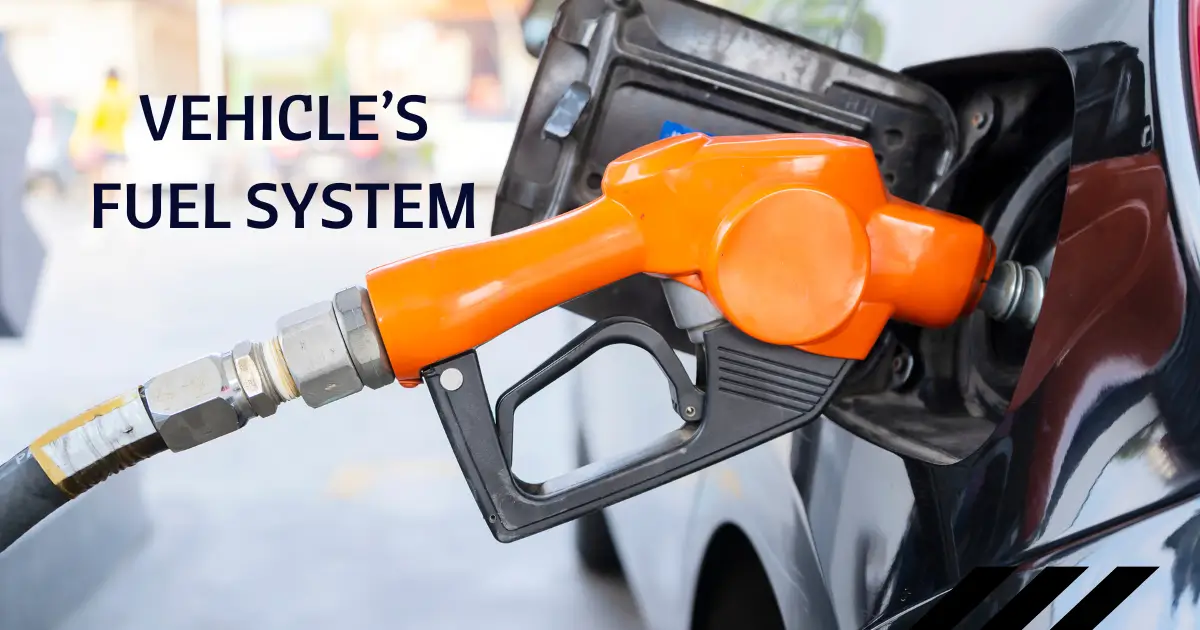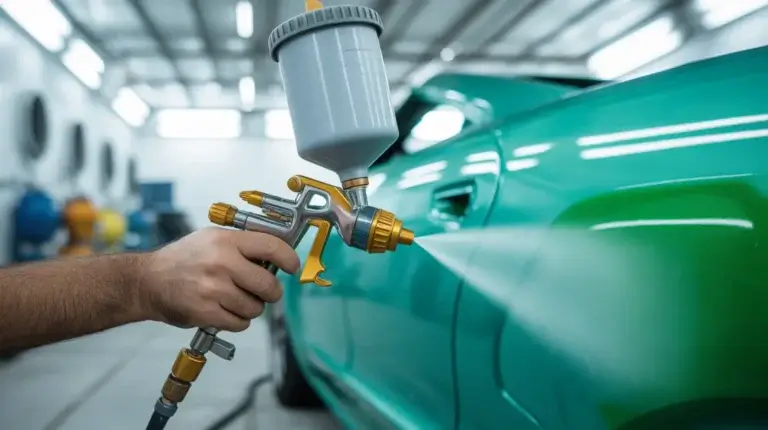Introduction to Vehicle’s Fuel System
Understanding your vehicle’s fuel system is essential for optimizing its performance, efficiency, and longevity. In this comprehensive guide, we delve into the intricate world of vehicle fuel systems, covering everything from the basic components and types of systems available to the latest innovations in fuel technology.
Whether you’re a seasoned car enthusiast or a new vehicle owner, this post will equip you with the knowledge you need to make informed decisions about your vehicle’s fuel system. Join us as we explore the importance of fuel efficiency, maintenance practices, cost considerations, safety measures, the environmental impact of your choices, and how to select the right fuel system for your needs. Get ready to enhance your understanding and ensure your vehicle runs smoothly for years to come.
Types of Fuel Systems
The vehicle’s fuel system plays a pivotal role in ensuring the smooth operation of any automobile. It’s responsible for storing and supplying fuel to the engine, a process that varies significantly depending on the type of fuel system in use. Understanding the different types of fuel systems can help you make informed decisions about your vehicle’s maintenance and fuel efficiency.

Gasoline Fuel Systems
Gasoline fuel systems are the most common type of fuel system found in vehicles today. They use a fuel pump to transport fuel from the tank to the engine, where it’s mixed with air before combustion. This system relies on either a carburetor or fuel injection to manage the air-fuel mixture.
Diesel Fuel Systems
Diesel fuel systems operate similarly to gasoline systems but are designed to accommodate the denser, oilier nature of diesel fuel. Diesel engines inject the fuel directly into the combustion chamber at high pressure, a process that requires a more robust and precise fuel injection system.
Hybrid Fuel Systems
Hybrid vehicles use a combination of an internal combustion engine and one or more electric motors. Their fuel systems manage gasoline in a way that supports both the engine and the electric powertrain, optimizing efficiency and reducing emissions.
Electric “Fuel” Systems
While not a fuel system in the traditional sense, electric vehicles (EVs) have an “electric fuel system” comprising a battery pack and an electric powertrain. Instead of managing liquid fuel, this system focuses on the storage and management of electrical energy.
Alternative Fuel Systems
Alternative fuel systems include those that use non-traditional fuels such as hydrogen, biodiesel, and natural gas. Each system is uniquely designed to store and deliver its specific type of fuel efficiently and safely to the engine.
Understanding the types of fuel systems and how they differ is crucial for anyone interested in vehicle maintenance, fuel efficiency, or environmental impact. Whether you’re driving a traditional gasoline-powered car, a diesel truck, a hybrid, an electric vehicle, or an alternative fuel automobile, knowing your vehicle’s fuel system enhances your ability to keep it running smoothly and efficiently.
Fuel System Components

The efficiency and performance of a vehicle heavily rely on its fuel system’s integrity and functionality. This system comprises several key components that work together to ensure fuel is stored, delivered, and mixed with air properly before combustion. Understanding these components is essential for anyone looking to maintain or enhance their vehicle’s fuel system.
Fuel Tank
The fuel tank acts as the storage unit for the vehicle’s fuel, keeping it safe and contained until it’s needed by the engine. It is designed to resist corrosion, withstand pressure changes, and minimize fuel vapor losses.
Fuel Pump
The fuel pump’s role is to move fuel from the tank to the engine. In most modern vehicles, this is an electric pump located inside the fuel tank. It must generate enough pressure to deliver fuel efficiently, even at high engine loads and speeds.
Fuel Filters
Fuel filters are crucial for removing contaminants from the fuel before it enters the engine. A clogged filter can lead to reduced performance, increased emissions, and even engine damage.
Fuel Injectors
Fuel injectors play a critical role in the fuel system, precisely spraying fuel into the engine’s combustion chamber. Their design allows for the fuel to be atomized, which is essential for efficient combustion.
Fuel Lines
Fuel lines are the conduits through which fuel travels from the tank to the engine. They must be durable and leak-proof to prevent fuel loss and potential safety hazards.
Fuel Pressure Regulator
The fuel pressure regulator ensures that the fuel injectors receive fuel at a consistent pressure, which is vital for smooth engine operation and performance. It adjusts the pressure according to engine demands.
Understanding the components of your vehicle’s fuel system is the first step towards ensuring its reliability and efficiency. Regular maintenance checks can help identify potential issues early, preventing costly repairs and keeping your vehicle running smoothly. These components, when functioning correctly, work invisibly to deliver the performance and fuel efficiency you expect from your vehicle. Including clear, informative images of each component can greatly enhance the understanding and engagement of readers, making complex topics accessible to everyone.
Fuel Efficiency and Emissions

Fuel efficiency and emissions are crucial factors in the design and operation of a vehicle’s fuel system. Enhancing fuel efficiency means maximizing the distance a vehicle can travel on a given amount of fuel, while reducing emissions involves minimizing the harmful gases released into the environment during combustion. Understanding how these aspects are influenced by the fuel system can help drivers make more informed decisions about their vehicles and driving habits.
Understanding Fuel Efficiency
Fuel efficiency is determined by how effectively a vehicle converts the fuel’s energy into kinetic energy to move the car. Several components of the fuel system, such as the fuel injectors and the fuel pump, play significant roles in this process. Proper maintenance of these components is essential for keeping the fuel system efficient.
Factors Affecting Emissions
Vehicle emissions are affected by the type of fuel used, the condition of the fuel system, and the efficiency of the combustion process. Emissions not only include carbon dioxide, a major greenhouse gas, but also pollutants like nitrogen oxides and particulate matter that can harm human health and the environment. The fuel system must be designed and maintained to minimize these emissions.
Technologies to Improve Fuel Efficiency and Reduce Emissions
Advancements in fuel system technology continue to improve fuel efficiency and reduce emissions. These include direct fuel injection, variable fuel pressure systems, and advanced fuel filters. Additionally, hybrid and electric vehicles represent significant leaps forward in reducing reliance on fossil fuels and cutting emissions.
Tips for Maintaining Fuel Efficiency
- Regular Maintenance: Keeping the fuel system clean and components in good working order is essential. Regularly replacing fuel filters and ensuring injectors are not clogged can significantly impact efficiency.
- Driving Habits: Smooth acceleration and maintaining a steady speed can improve fuel efficiency. Avoid excessive idling and heavy braking when possible.
- Tire Pressure: Keeping tires inflated to the manufacturer’s recommended pressure can reduce drag and improve fuel efficiency.
The Role of Emissions Testing
Emissions testing helps identify vehicles that exceed emission standards, prompting necessary repairs or adjustments to the fuel system. Regular testing can ensure your vehicle is as environmentally friendly as possible.
Understanding and optimizing your vehicle’s fuel efficiency and emissions is not only beneficial for your wallet but also for the environment. By focusing on proper maintenance and adopting efficient driving habits, you can contribute to a cleaner, healthier planet.
Maintenance and Troubleshooting
Regular maintenance and effective troubleshooting are key to ensuring the longevity and performance of your vehicle’s fuel system. By staying on top of potential issues, you can avoid costly repairs and keep your vehicle running smoothly. This section covers essential maintenance tips and common troubleshooting strategies for your vehicle’s fuel system.
Regular Maintenance Tips
To maintain the efficiency and reliability of your vehicle’s fuel system, adhere to the following practices:
- Fuel Filter Replacement: Change the fuel filter according to your vehicle manufacturer’s recommendations. A clean filter ensures that your fuel is free of contaminants before it reaches the engine.
- Fuel Injector Cleaning: Keep your fuel injectors clean to prevent clogging and ensure an optimal fuel spray pattern. Consider using a fuel system cleaner periodically or having the injectors professionally cleaned as needed.
- Fuel Pump Check: Listen for unusual noises from the fuel pump, which could indicate wear or failure. A failing fuel pump can lead to a drop in fuel pressure, affecting engine performance.
- Check Fuel Lines and Connections: Regularly inspect fuel lines and connections for leaks or wear. Even small leaks can lead to fuel loss and increased risk of fire.
Troubleshooting Common Fuel System Issues

Encountering problems with your vehicle’s fuel system can be frustrating. Here are some common issues and how to troubleshoot them:
- Engine Sputtering at High Speeds: This could be a sign of a failing fuel pump. If the pump cannot deliver fuel at the required pressure, the engine may sputter or lose power during acceleration.
- Decreased Fuel Efficiency: If you notice a sudden drop in fuel efficiency, it could be due to a clogged fuel filter, dirty fuel injectors, or issues with the oxygen sensor affecting the fuel-air mix.
- Difficulty Starting the Engine: A vehicle that struggles to start might have problems with the fuel pump, injectors, or pressure regulator. Ensure that the fuel pump is activating when the key is turned.
- Check Engine Light: If the check engine light comes on, use a diagnostic scan tool to read the error codes. Many fuel system issues, such as problems with the fuel pressure sensor or injectors, will trigger specific codes.
Proactive maintenance and knowing how to troubleshoot common issues can significantly extend the life of your vehicle’s fuel system. Not only does this ensure your car remains reliable and efficient, but it also helps avoid the inconvenience and expense of unexpected repairs.
Cost Analysis
Understanding the cost implications of maintaining your vehicle’s fuel system is crucial for effective budgeting and vehicle care. This cost analysis will provide insights into the expenses associated with fuel system maintenance, potential repairs, and the overall impact on vehicle ownership costs. We’ll explore how investing in regular maintenance can save money in the long run by preventing more costly repairs and improving fuel efficiency.
Initial Costs vs. Long-term Savings
Investing in regular maintenance of your vehicle’s fuel system can seem like an added expense, but it’s crucial to consider the long-term savings. Regular checks and replacements of components like fuel filters and injectors can prevent more significant, costly issues down the line.
Breakdown of Fuel System Maintenance Costs
- Fuel Filter Replacement: The cost of replacing a fuel filter can vary depending on your vehicle type but is generally an affordable and straightforward maintenance task. Neglecting this can lead to clogged filters, reducing fuel efficiency and potentially damaging the fuel pump and injectors.
- Fuel Injector Cleaning or Replacement: Cleaning fuel injectors is relatively inexpensive compared to replacing them. Regular cleaning helps maintain fuel efficiency and engine performance, while replacing injectors can be costly.
- Fuel Pump Replacement: The fuel pump is one of the more expensive components to replace. Regular inspection and early detection of issues can prevent complete failure, which is both inconvenient and costly.
The Impact of Fuel Efficiency on Costs
Improving and maintaining fuel efficiency directly affects your vehicle’s running costs. A well-maintained fuel system ensures optimal fuel usage, translating into savings at the pump. Conversely, a neglected system can lead to decreased efficiency and higher fuel costs over time.
Comparing Fuel System Repair Costs
Unexpected repairs can significantly impact your budget. Components like the fuel pressure regulator, fuel lines, and the fuel tank itself can require repairs or replacements due to wear or damage. Understanding the potential costs associated with these repairs can help in planning and decision-making.
Regular maintenance and timely repairs of your vehicle’s fuel system are not just about preventing breakdowns; they’re an investment in the longevity and efficiency of your vehicle. By understanding the costs involved and the potential savings, you can make informed decisions that ensure your vehicle remains reliable and cost-effective to run.
Safety Considerations
When it comes to your vehicle’s fuel system, safety is paramount. Given that the system handles highly flammable materials, understanding and adhering to safety considerations is crucial to prevent accidents and ensure the wellbeing of all passengers. This section outlines key safety considerations for maintaining and handling your vehicle’s fuel system.
Regular Inspection and Maintenance
Regular inspections are vital to identify any potential issues like leaks, corrosion, or damage to the fuel tank, lines, and connections. Early detection can prevent dangerous situations such as fuel leaks, which could lead to fires.
Handling Fuel with Care
Whether you’re refueling your vehicle, handling fuel canisters, or performing maintenance tasks involving the fuel system, it’s important to handle fuel with care. Avoid smoking or using open flames near fuel, and always work in a well-ventilated area to prevent inhalation of fumes.
Installing High-Quality Components
Using high-quality replacement parts for any component of the fuel system is crucial. Inferior quality parts may not meet safety standards, increasing the risk of failure and accidents.
Emergency Preparedness
Having a fire extinguisher rated for chemical fires and knowing how to use it can be a lifesaver in the event of a fuel system fire. Additionally, familiarize yourself with your vehicle’s emergency shut-off feature if it has one.
Safe Fuel Storage
If you store fuel or a vehicle with a large amount of fuel, ensure it’s in a well-ventilated area away from living spaces and ignition sources. Proper fuel storage containers should be used to prevent leaks and evaporation.
Educating Passengers
Educate regular passengers, especially children, about the basics of fuel safety, like the dangers of playing near fuel tanks or attempting to refuel vehicles themselves.
Safety in handling and maintaining your vehicle’s fuel system cannot be overstated. By following these guidelines, you can significantly reduce the risk of accidents and ensure a safer driving experience for you and your passengers. Implementing regular checks, using quality parts, and being prepared for emergencies are all steps in the right direction.
Environmental Impact
The environmental impact of a vehicle’s fuel system encompasses a wide range of factors, from the emissions it produces to the efficiency with which it uses fuel. Given the growing concern over climate change and air quality, understanding the environmental footprint of your vehicle’s fuel system is more important than ever. This section explores how the fuel system affects the environment and what can be done to mitigate these effects.
Emissions and Air Quality
Vehicles emit a variety of pollutants, including carbon dioxide (CO2), nitrogen oxides (NOx), and particulate matter, all of which contribute to poor air quality and climate change. The efficiency of the fuel system directly impacts the volume of these emissions.
Fuel Efficiency and Consumption
Fuel efficiency directly correlates with environmental impact. The more efficient a vehicle’s fuel system, the less fuel it consumes per mile traveled, reducing its overall emissions. Advances in fuel system technology, such as direct injection and hybrid systems, have made significant strides in improving fuel efficiency.
The Role of Alternative Fuels
Alternative fuels, such as electricity, hydrogen, biodiesel, and ethanol, can significantly reduce the environmental impact of vehicles. These fuels often produce fewer emissions and, in some cases, are derived from renewable resources.
Reducing Evaporative Emissions
Evaporative emissions from fuel systems, which occur when fuel evaporates into the atmosphere even when the vehicle is not running, contribute to air pollution. Modern vehicles are equipped with evaporative emission control systems (EVAP) to capture these vapors and reduce their impact.
Sustainable Driving and Maintenance Practices
Drivers can reduce their environmental impact by adopting sustainable driving habits, such as avoiding excessive idling and maintaining optimal tire pressure. Regular maintenance of the fuel system also plays a crucial role in minimizing emissions.
The Future of Fuel Systems
Looking forward, the evolution of fuel systems will continue to focus on reducing emissions and improving efficiency. Innovations in electric vehicle technology and fuel cell vehicles offer promising avenues for dramatically lowering the environmental impact of personal transportation.
Understanding and mitigating the environmental impact of your vehicle’s fuel system is a responsibility shared by manufacturers, governments, and individual drivers. Through technological innovation and responsible driving practices, it’s possible to significantly reduce the environmental footprint of our vehicles.
Innovations in Fuel System Technology
The continuous evolution of fuel system technology is pivotal in enhancing vehicle performance, fuel efficiency, and environmental sustainability. As automakers strive to meet stricter emissions standards and cater to consumer demand for higher efficiency, several groundbreaking innovations have emerged. This section explores the latest advancements in fuel system technology and their impact on the automotive industry.
Direct Fuel Injection
Direct fuel injection is a technology that allows for more precise delivery of fuel directly into the combustion chamber of each cylinder. This precision improves combustion efficiency, increases power, and reduces fuel consumption and emissions.
Variable Fuel Pressure Systems
Variable fuel pressure systems adjust the pressure of the fuel delivered to the injectors based on the engine’s current needs, optimizing performance and efficiency. This adaptability ensures that the engine operates optimally under different conditions, reducing waste and emissions.
Hybrid Fuel Systems
Hybrid vehicles combine an internal combustion engine with one or more electric motors, using a sophisticated fuel system that optimizes efficiency by switching between or combining power sources. This innovation has significantly reduced fuel consumption and emissions in hybrid vehicles.
Electric Vehicle (EV) Charging Technologies
With the rise of electric vehicles, innovations in charging technology are crucial for improving convenience and reducing charging times. Fast charging stations and wireless charging are among the advancements that promise to make electric vehicles more appealing to a broader audience.
Hydrogen Fuel Cells
Hydrogen fuel cell technology is a groundbreaking advancement that uses hydrogen to generate electricity to power a vehicle, emitting only water vapor as a byproduct. This technology represents a significant step toward zero-emission vehicles.
Advanced Emissions Control
New technologies in emissions control, such as selective catalytic reduction (SCR) and particulate filters, have dramatically reduced harmful emissions from vehicles. These systems are increasingly sophisticated, capable of capturing a greater amount of pollutants before they are released into the atmosphere.
The landscape of fuel system technology is rapidly changing, driven by innovation and the need for cleaner, more efficient transportation options. As these technologies continue to develop and gain widespread adoption, the future of automotive fuel systems looks promising, with potential benefits including reduced environmental impact, improved vehicle performance, and increased fuel economy.
Choosing the Right Fuel System for Your Vehicle
Selecting the appropriate fuel system for your vehicle is a critical decision that can affect your car’s performance, efficiency, and environmental impact. With advancements in automotive technology, drivers now have more options than ever before. This guide will help you navigate these choices by considering factors such as vehicle type, driving habits, and environmental concerns.
Consider Your Vehicle Type and Needs
Different vehicles are designed to operate with specific fuel systems. Whether you drive a compact car, an SUV, a truck, or a performance vehicle will significantly influence the most suitable fuel system.
Analyze Your Driving Habits
How and where you drive should also play a crucial role in your decision. Frequent long-distance travelers might prioritize fuel efficiency and reliability, while city drivers may lean towards systems that offer lower emissions.
Evaluate Fuel Efficiency and Environmental Impact
With growing environmental concerns, considering the fuel efficiency and emissions of your vehicle’s fuel system is more important than ever. Hybrid and electric vehicles offer significant advantages in these areas but may not be suitable for every driver’s needs.
Budget Considerations
The initial cost of the vehicle and the fuel system, along with ongoing expenses such as fuel, maintenance, and repairs, should be carefully considered. While some systems may have higher upfront costs, they could offer savings in the long run through better fuel efficiency or lower maintenance requirements.
Future-Proofing Your Purchase
With the automotive industry rapidly evolving, considering the future viability of your chosen fuel system is wise. Electric and hybrid technologies are becoming more prevalent, and infrastructure for these vehicles is expanding.
Consult with Professionals
When in doubt, consulting with automotive professionals can provide valuable insights into the best fuel system for your specific situation. They can offer personalized advice based on the latest technologies and market trends.
Choosing the right fuel system for your vehicle involves weighing several factors, including your driving needs, environmental concerns, and budget. By carefully considering these aspects, you can select a fuel system that not only meets your current needs but also aligns with future trends in automotive technology.
Conclusion
Choosing the right fuel system for your vehicle is a decision that has far-reaching implications for your driving experience, your wallet, and the planet. As we’ve explored the various aspects of vehicle fuel systems—from the types and components to efficiency, maintenance, costs, safety, environmental impact, technological innovations, and selecting the right system—it’s clear that this choice is not to be taken lightly.
The advancements in fuel system technology have provided us with more options than ever, each with its own set of benefits and considerations. Whether you prioritize fuel efficiency, environmental sustainability, performance, or cost-effectiveness, there is a fuel system out there that meets your needs.
Remember, maintaining your vehicle’s fuel system is crucial for its longevity, efficiency, and safety. Regular checks and servicing can prevent costly repairs and keep your car running smoothly. Moreover, being mindful of your vehicle’s environmental impact and choosing a fuel-efficient system can contribute significantly to reducing your carbon footprint.
In the rapidly evolving automotive landscape, staying informed about the latest innovations and trends in fuel system technology can help you make choices that align with your values and lifestyle. Consulting with professionals and considering your vehicle’s specific requirements and your driving habits will guide you toward the right fuel system for your car.
In the end, the right fuel system for your vehicle is one that not only meets your immediate needs but also anticipates the future of automotive technology and environmental responsibility. By making informed decisions today, we can all drive towards a cleaner, more efficient, and more sustainable tomorrow.




